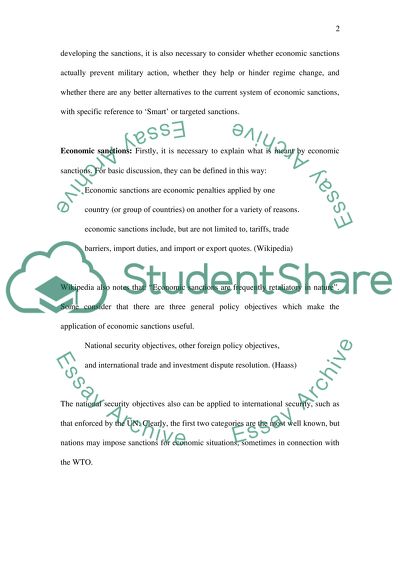Cite this document
(“Are Economic Sanctions A Humane Alternative To War or Are They Simply Essay”, n.d.)
Retrieved from https://studentshare.org/miscellaneous/1523407-are-economic-sanctions-a-humane-alternative-to-war-or-are-they-simply-a-tool-of-coercion
Retrieved from https://studentshare.org/miscellaneous/1523407-are-economic-sanctions-a-humane-alternative-to-war-or-are-they-simply-a-tool-of-coercion
(Are Economic Sanctions A Humane Alternative To War or Are They Simply Essay)
https://studentshare.org/miscellaneous/1523407-are-economic-sanctions-a-humane-alternative-to-war-or-are-they-simply-a-tool-of-coercion.
https://studentshare.org/miscellaneous/1523407-are-economic-sanctions-a-humane-alternative-to-war-or-are-they-simply-a-tool-of-coercion.
“Are Economic Sanctions A Humane Alternative To War or Are They Simply Essay”, n.d. https://studentshare.org/miscellaneous/1523407-are-economic-sanctions-a-humane-alternative-to-war-or-are-they-simply-a-tool-of-coercion.


